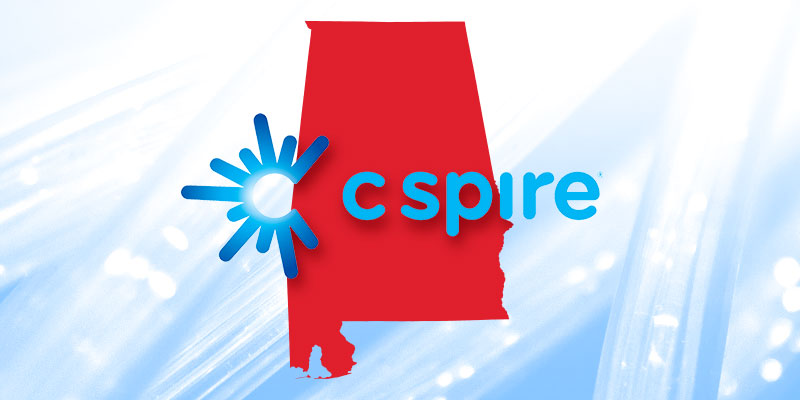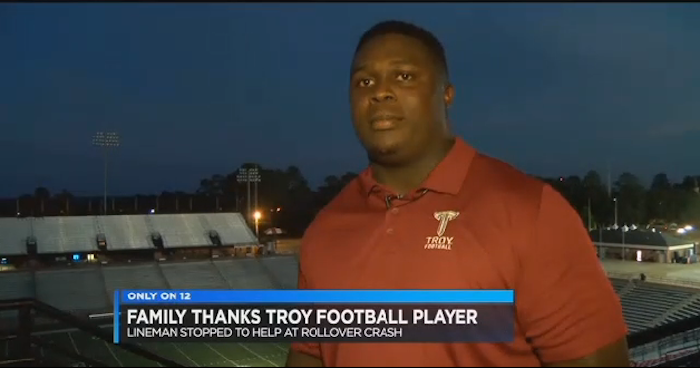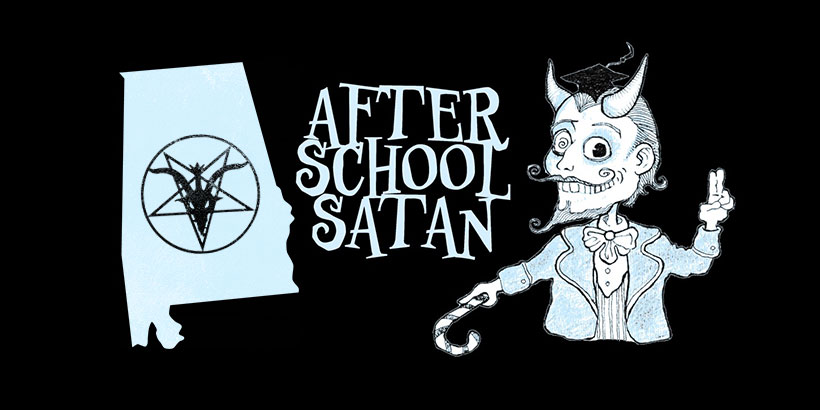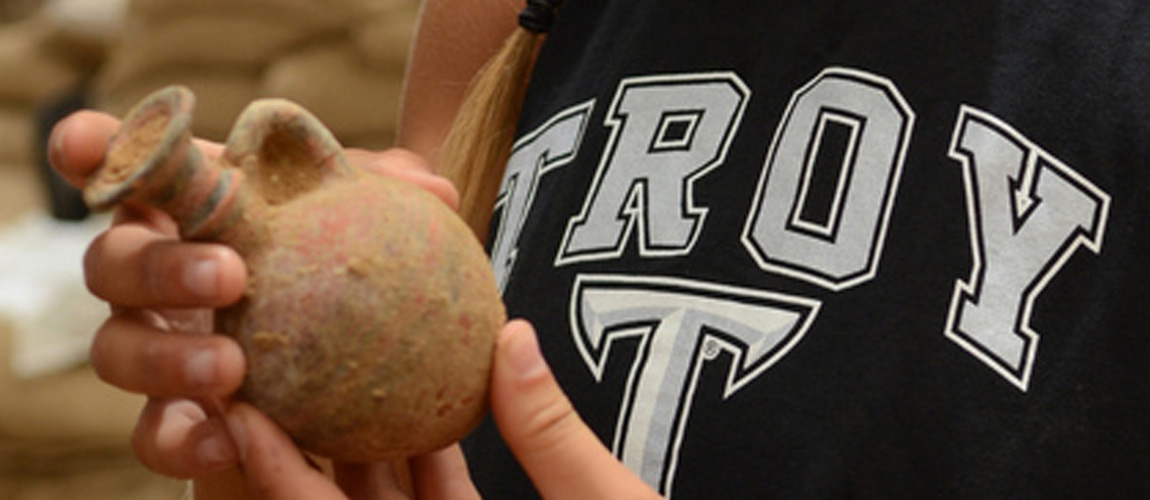
TROY, Ala. – Five Troy University students were part of an archeological expedition that recently announced a major find in Ashkelon, Israel, that may provide clues to a Biblical mystery.
The Leon Levy Expedition, a 30-year excavation of Ashkelon, recently announced the discovery of what its archeologists believe to be the world’s first discovered Philistine cemetery.
The discovery could reveal answers to questions about the origins of the Philistines, an ancient people who migrated to southern Israel thousands of years ago.
To this point, most of what’s known about the Philistines has come from the Bible, in which they are enemies of the Israelites.
In 2012, Troy officially joined the Leon Levy Foundation, Harvard’s Semitic Museum, Boston College and Wheaton College in a consortium to continue an ongoing excavation that began in 1985 that teamed professional archeologists with students and volunteers to conduct annual excavations of the ancient city about 35 miles south of Tel Aviv.
They say the cemetery, discovered in 2013, and the remains of more than 200 humans found there since then, provides key information about how the Philistines lived and, perhaps, clues to their origins.
“It wasn’t until I realized that this is the only Philistine cemetery ever found and excavated that I really started to understand our purpose for the project,” said Rebekah Ramirez, a Troy junior majoring in anthropology who took part in the excavation. “We were in unknown territory. Every day we glimpsed a little bit more of the Philistine world. There is usually such a negative connotation associated with the Philistines, but the stories are from outside sources. The information we gathered about these people is helping not only the archeology world to better understand this culture, but the history of the Philistines as well.”
The excavation just completed its 30th and final year, and Troy University has been sending students each of the last seven summers.
Troy’s involvement owes to the experiences of Dr. Bill Grantham, a professor of anthropology who worked in Ashkelon in the late 1980s and early 1990s.
One of Grantham’s students, Hilary Boyd, became interested in Ashkelon and funded her own trip to the excavation in 2009. By the next year, funding had been secured to begin sending students on an annual basis.
“I am incredibly excited for (the students),” Boyd said. “I cannot overstate the importance of this find to academia. The Philistines are known as the enemies of the Israelites. We know them as these bumbling characters from history, but as time has gone on and research has been done on the Philistines, the story is somewhat different. Now, for first time, we have an actual Philistine cemetery where we can go and get the story from their own point of view.”
Boyd said Grantham was essential in getting the University involved with the Leon Levy Expedition. For Grantham, it’s rewarding to see the fruits of his students’ labor.
“What it means for me personally is my students get to carry on a project I participated in many years ago, it gets my students first-hand experience in a major exploration and, with the cemetery, first-hand experience with a major archeological find,” Grantham said.
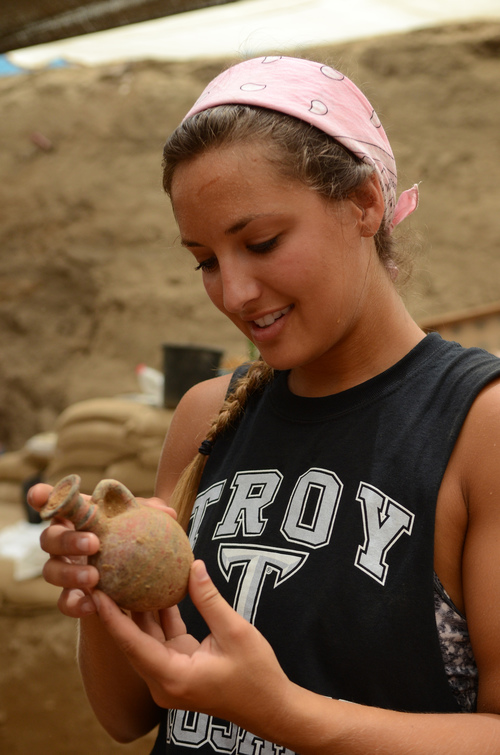
Daniel Lowery was the second Troy student to travel to Ashkelon, going with Boyd in 2010. He said the find is one of the most significant in recent memory.
“We don’t really know a lot about the Philistines other than some of the descriptions in the Bible, where they tend to be kind of vilified,” said Lowery, a professional archeologist working for a private Tuscaloosa firm. “I think this is going to be our first opportunity to get some direct evidence on where these people may have come from. The current students have got to feel twice as excited as I do. They’re really on the ground floor of something that’s going to be remembered as a very meaningful discovery in Middle Eastern archeology.”
Ashleigh Williams, a junior anthropology major who has spent the summer in Ashkelon, said she and her fellow students are honored to have taken part in the excavation.
“It is a high honor to have made a contribution to the first Philistine cemetery discovered in Ashkelon, and to work with the Leon Levy Expedition,” she said. “As more research continues to be conducted and published on our discoveries, I am excited to have been a part of a team that has re-told the story of the Philistines.”
Grantham said the experience and knowledge gained by students on the excavation have been invaluable.
“It’s an opportunity for them to get first-hand experience on a major excavation,” he said. “The people they worked with on this excavation are some of the outstanding professionals in Middle Eastern archeology. Not only do they get to do the work, they get to work with and get to know some of the leading professionals in the field.”
In addition to Williams and Ramirez, Troy students Clayton Johnson, Whitney Spake and Savanna Moore took part in the expedition this year.






